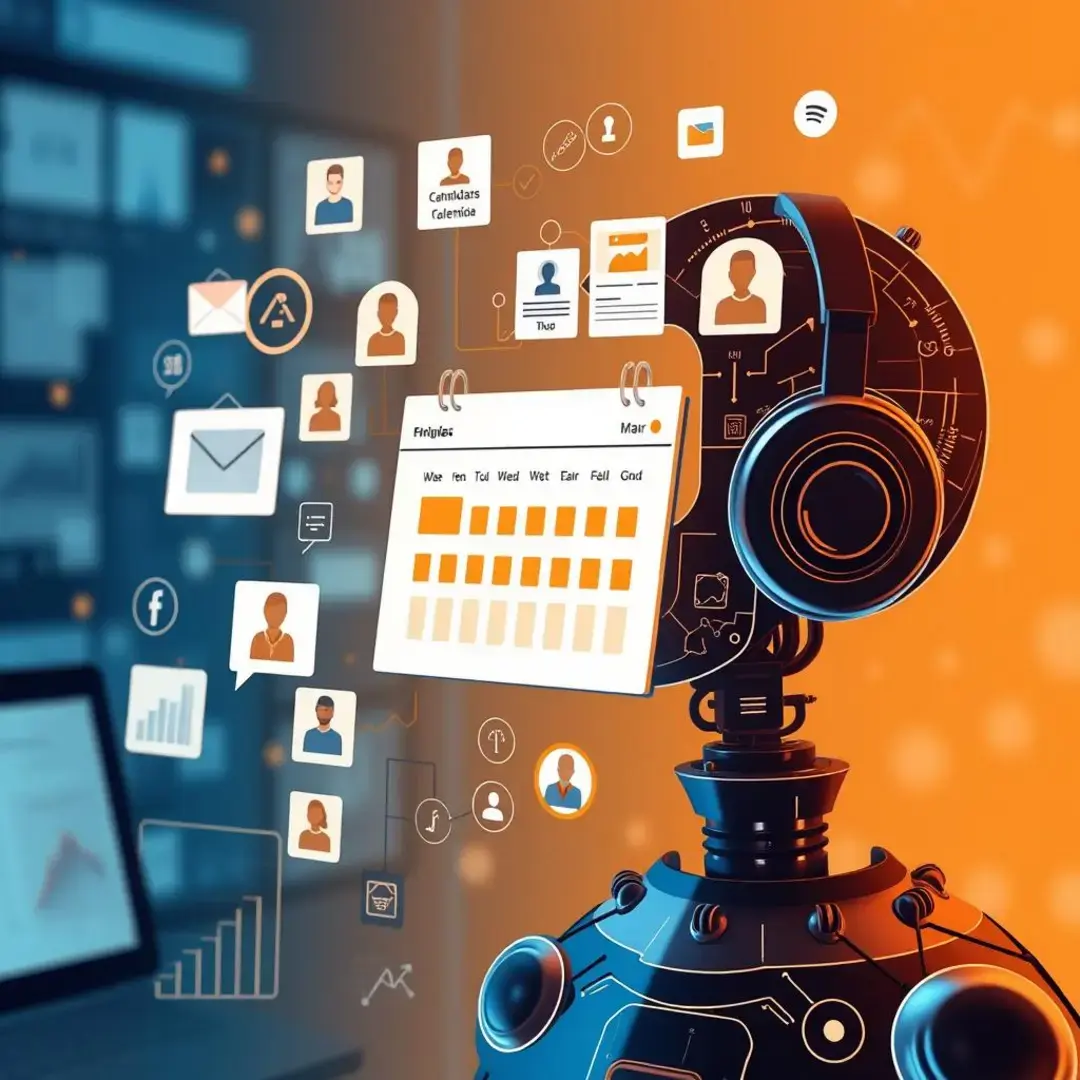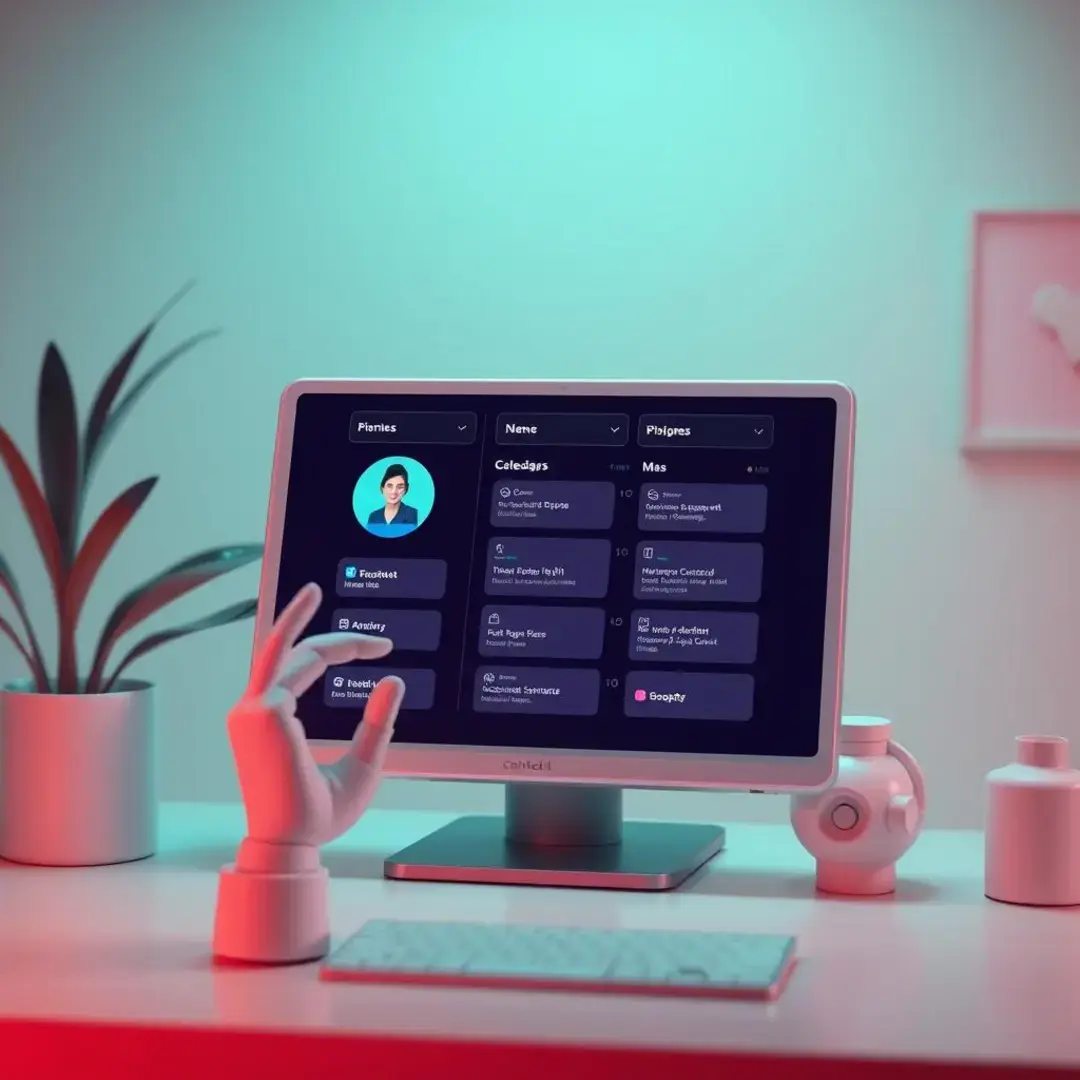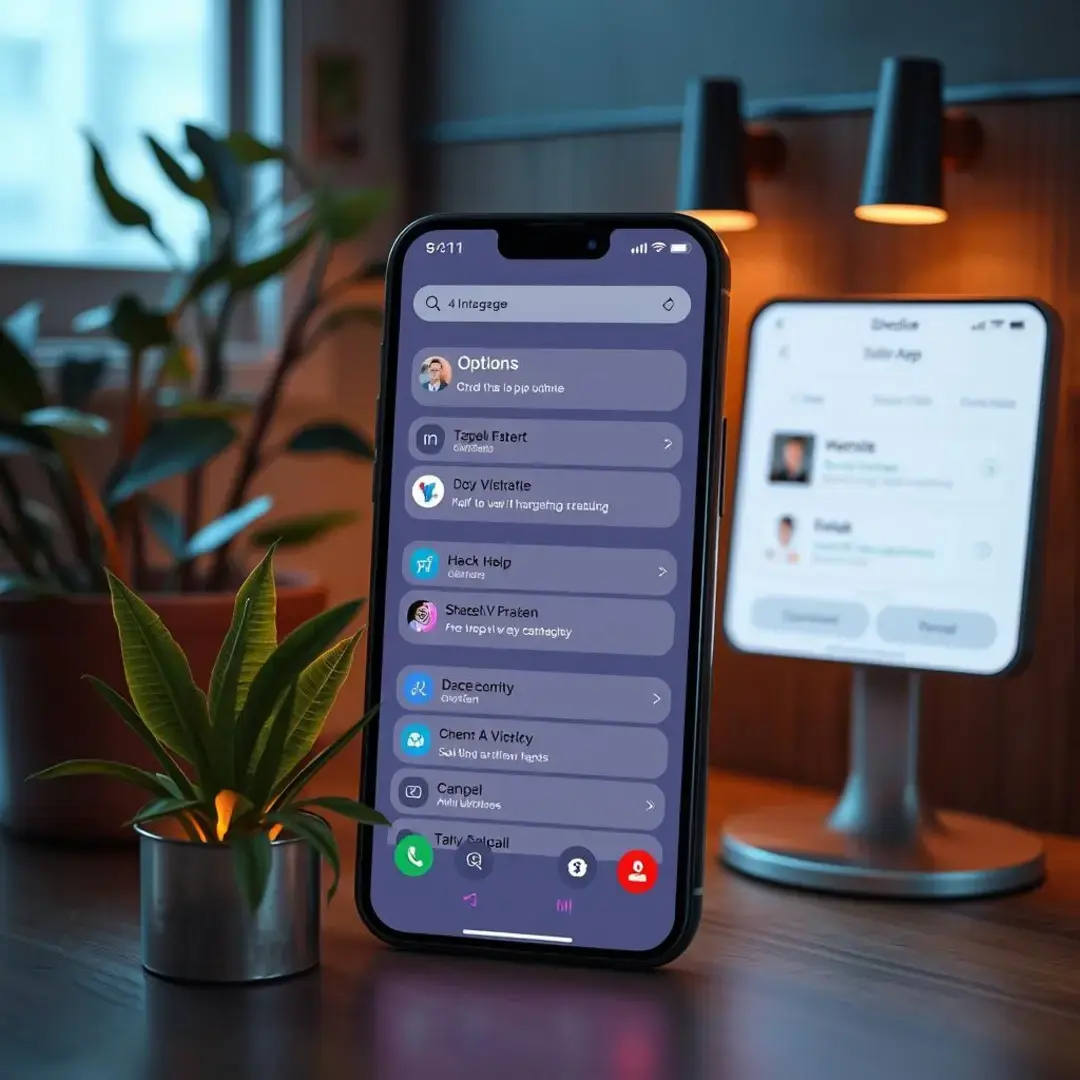Interview Scheduling
Introduction

Overview of Interview Scheduling in Recruitment and Candidate Matching
In the fast-paced world of recruitment, interview scheduling stands out as a crucial process that directly impacts a company’s ability to secure top talent. The integration of technology into this aspect of recruitment has transformed traditional methods, making the scheduling process not only more efficient but also more aligned with the needs of candidates and employers alike. By automating scheduling and minimizing back-and-forth communication, both parties can focus on what truly matters—the interview itself and the potential for a successful match.
With the rise of AI applications in recruitment, interview scheduling has evolved significantly. Forward-thinking organizations are leveraging innovative technologies to streamline this process. As we delve into this topic, we will explore the current trends, the future outlook, and practical guidance on selecting the right tools to enhance your interview scheduling experience.
Key Trends in Interview Scheduling

Emerging Trends
One of the most notable advancements in interview scheduling is the emergence of AI-powered scheduling assistants. These intelligent systems can automate the scheduling process by analyzing both the interviewers’ and candidates’ availability and preferences, thereby eliminating the time-consuming process of manual coordination. This technology not only saves time but also makes scheduling more accurate, reducing the risk of scheduling conflicts.
Another trend gaining traction is the automation of feedback collection post-interview. By utilizing integrated systems that automatically gather responses from interviewers, companies can streamline their evaluation processes. This kind of automation provides clear insights into candidate performance, fostering a more data-driven approach to hiring and allowing for quicker decision-making.
Industry Impact
The implications of these trends on the recruitment industry are profound. Organizations are experiencing increased efficiency in their hiring processes, with many reporting a significant reduction in time-to-hire metrics. By simplifying scheduling and coordination, companies can move candidates through the recruitment funnel more swiftly, leading to better overall hiring outcomes.
Beyond operational efficiency, these advancements also contribute to an enhanced candidate experience. Candidates appreciate the ease of scheduling their interviews and are more likely to feel valued when the process is organized and user-friendly. As recruitment practices continue to evolve, providing a positive experience for candidates has become a strategic priority for organizations looking to attract top talent.
Challenges and Limitations
Despite these advancements, there are challenges that need to be addressed, particularly around data privacy and security. As organizations rely more heavily on AI and automated systems, they must ensure that candidate information is handled securely. Robust data protection measures are essential to safeguard against breaches and maintain trust with applicants.
Additionally, many companies face difficulties integrating new scheduling tools with their existing Applicant Tracking Systems (ATS) and Human Resource Information Systems (HRIS). Ensuring seamless interoperability is crucial for maintaining an efficient recruitment workflow. Therefore, organizations must choose solutions that align well with their current technology stacks.
Future Outlook

Future Developments
Looking ahead, we anticipate significant developments in interview scheduling technology. Real-time scheduling features will likely become standard, enabling instant updates on availability and reducing the chances of last-minute conflicts. This immediacy can greatly enhance the overall scheduling experience for both candidates and hiring teams.
Moreover, personalization is set to play a vital role in the future of scheduling. Tools that allow candidates to choose times based on their personal preferences, or that tailor the interview format to suit their comfort levels, will become increasingly valuable. Such customized experiences are likely to attract a more diverse pool of candidates, enhancing inclusivity in recruitment.
Market Predictions
The market for interview scheduling software is projected to grow considerably in the coming years. As companies recognize the return on investment that comes from adopting efficient scheduling solutions, competition among software providers will intensify, leading to more innovative features and improved usability.
We can also expect that the adoption of AI-powered tools in recruitment will continue to rise. Organizations that embrace these technologies will likely gain a competitive edge, positioning themselves as leaders in candidate engagement and selection. The ability to leverage data analytics for making informed hiring decisions cannot be overstated.
Potential Impact on Users
For users, these developments will translate into more streamlined and efficient hiring processes. As administrative burdens are lifted, recruiters can focus on candidate engagement and assessment, which are critical components of successful recruitment. The ultimate goal is a faster, smoother, and more effective hiring experience for all parties involved.
Additionally, an emphasis on enhancing candidate engagement will result in higher satisfaction rates among applicants. When candidates feel seen and valued throughout the hiring process, they are more likely to share positive experiences with others and consider offers with enthusiasm. This positive cycle can reinforce a brand’s reputation in the job market.
How to Choose the Right App

Step-by-Step Guide
To find the right app, start by assessing your current scheduling process. Identify bottlenecks and inefficiencies that can be improved upon. Understanding your shortcomings will provide clarity on what features and capabilities you truly need in an app.
Next, identify your specific needs and requirements. Consider factors such as the size of your recruitment team, the volume of candidates you manage, and any unique scheduling challenges you face. Having a well-defined list will guide your search for the ideal solution.
After outlining your requirements, begin evaluating different interview scheduling apps. Look for reviews, compare features, and request demos whenever possible. Engaging in this thorough evaluation will ensure you make an informed decision tailored to your needs.
Finally, once you’ve chosen an app, focus on implementing it effectively. Integration with existing systems is crucial for maximizing the benefits. Ensure that your team is trained on the new tool, and actively seek feedback to make the necessary adjustments for a smooth transition.
Conclusion

In conclusion, interview scheduling is an integral part of the recruitment process that is poised for continued transformation through technology advancements. By staying informed about key trends and future developments, organizations can make strategic choices that enhance their recruitment strategy. Selecting the right interview scheduling app can lead to greater efficiency, improved candidate experiences, and ultimately, better hiring decisions. Embracing this technology not only positions companies at the forefront of recruitment innovation but also ensures they remain competitive in attracting top talent in an increasingly crowded job market.
Factors to Consider
Choosing the right interview scheduling app is a critical decision that can greatly impact your recruitment strategy. The first factor to consider is integration capabilities. The selected tool should seamlessly connect with your existing ATS and HRIS platforms to ensure a smooth workflow.
Scalability is another important aspect. As your organization grows, your scheduling needs will evolve. Choosing an app that offers customization options will enable you to tailor the solution to meet your specific requirements, supporting your recruitment strategy in the long run.
Lastly, the user experience of the scheduling app should not be overlooked. A user-friendly interface will help both recruiters and candidates navigate the tool with ease. This ease of use can significantly enhance the overall experience for everyone involved.





